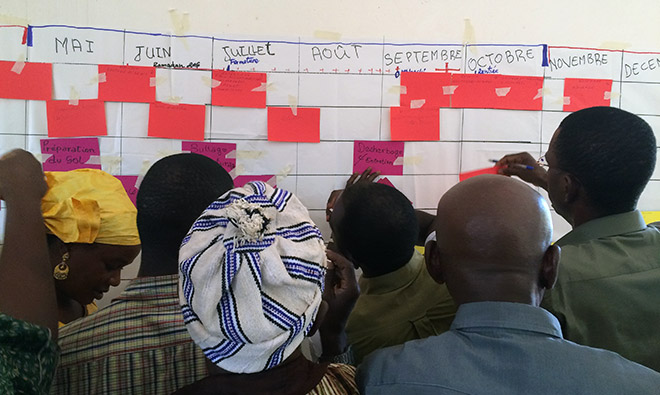
SPRING’s Food Security and Nutrition Director, Heather Danton, and SBCC Advisor, Phil Moses, traveled to Guinea in April to facilitate a week-long participatory workshop with partners from Winrock, Institut Superieur Agronomique et Vétérinaire (ISAV), and local NGOs. The workshop aimed to inform SPRING partners’ behavior change and agricultural extension work related to nutrition-sensitive agriculture. The workshop covered the agriculture-to-nutrition pathways and principles and other key concepts, such as criteria for selecting crops that address nutrient gaps in local diets. In order to support understanding of nutrition-sensitive agriculture, SPRING also built participants’ knowledge of nutrition, including recommended practices for maternal, infant, and young child feeding in the first 1,000 days. One workshop session included a seasonal calendar exercise during which participants used socio-cultural events, such as school holidays or religious festivals to examine timelines of crop production, health, income, and gender roles. In another session, participants identified nutrition-specific and nutrition-sensitive agriculture practices using photos appropriate to the social, cultural, and agroecological conditions in Faranah prefecture.
The workshop applied a contextualized participatory approach by using local experience, activities, and challenges as examples to support participants’ application of the workshop concepts to their own work. For example, facilitators used niébé (cowpea, or black-eyed pea), as a starting point for participants to identify and discuss nutrition-sensitive agriculture practices along each step of a commodity value chain. At the end of the workshop, participants committed to sharing their knowledge with colleagues, including incorporating both nutrition-specific and nutrition-sensitive agriculture concepts into existing and/or new training curricula.